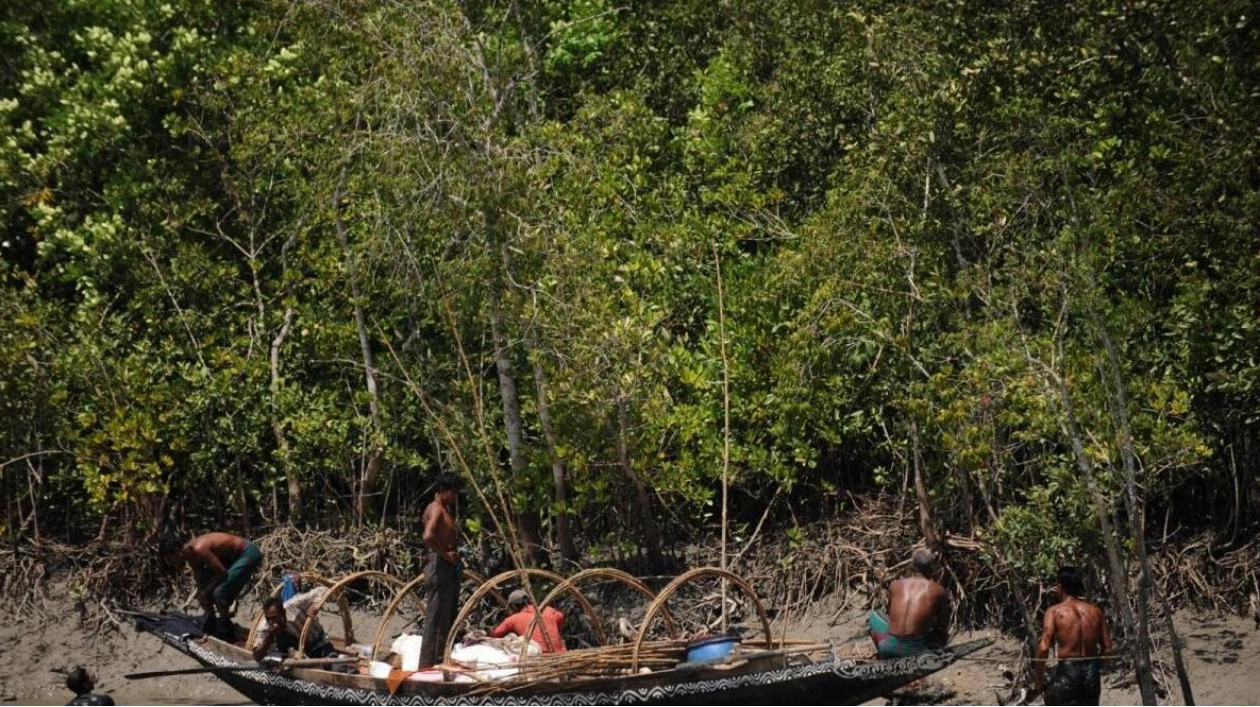Bangladeshi police have charged 26 individuals with the destruction of a significant mangrove forest area, crucial for shielding the low-lying country from storm surges intensified by climate change, according to environmental officials on Thursday.
"They have damaged parts of a unique ecosystem, designated as an ECA (Ecologically Critical Area)," stated Jamir Uddin, a deputy director of the environment department. Uddin described the case as "one of the largest environmental cases" the agency has addressed. The accused are alleged to have cleared approximately 560 acres of the southeastern Sonadia coastal forest, near Bangladesh's border with Myanmar, to establish commercial shrimp and salt farms.
They are facing charges under the nation's environmental laws and could receive a sentence of up to 10 years in prison if found guilty, according to Sukanta Chakrabarty, the chief of Sonadia police station. Bangladeshi newspaper Prothom Alo, the largest Bengali daily, reported that at least 2.3 million trees were cut down to make way for at least 45 shrimp and salt farms. Several of those charged are officials from the ruling Awami League party, Chakrabarty added. Charges were filed against the individuals on Tuesday.
Shrimp farming is a major export for Bangladesh, but to cultivate shrimps, farmers channel sea water into their farms, rendering the land unsuitable for other crops. Bangladesh is on the frontline of the global climate crisis, with scientists noting an increase in the frequency and intensity of cyclones and floods. Mangroves, which grow primarily in seawater or brackish water along coastlines and tidal rivers, play a vital role in protecting coastlines from erosion and extreme weather events, enhancing water quality by filtering pollutants, and serving as nurseries for numerous marine species.
They also contribute to combating climate change by sequestering millions of tonnes of carbon annually in their trees' leaves, trunks, roots, and soil. The International Union for Conservation of Nature (IUCN) cautioned in May that half of the world's mangrove ecosystems are at risk of collapse due to climate change, deforestation, and pollution. Mangroves are a critical component of Bangladesh's coastal defenses, with the Sundarbans, the world's largest mangrove forest and home to rare Bengal tigers, recognized for mitigating cyclone damages. A forest official highlighted that the Sonadia mangroves are a significant habitat for migratory birds, including the rare spoon-billed sandpiper.






